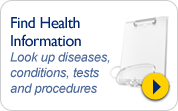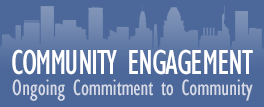Find It Fast
- About Johns Hopkins Medicine
- Diversity and Inclusion
- Emergency
- Employee Engagement
- Epic
- HIPAA
- HopkinsMedicine.org
- Hopkins Medicine Today
- Hopkins Medicine YouTube Channel
- Hopkins Policy & Document Library (HPO)
- Johns Hopkins University Policy & Document Library
- Leadership Updates and Managers' Resources
- myManager Portal
(Manager Access Only) - Patient Rights and Responsibilities
- Patient Safety
- Strategic Plan
| Title | A Call for Action: Capacity Building and Women’s Health in Sierra Leone |
| Sponsor | The Department of Gynecology and Obstetrics |
| rseay4@jhmi.edu | |
| Details | Faculty members from the Department of Gynecology and Obstetrics will be traveling to Sierra Leone in April to build human capacity and strengthen the health care system in place. The ultimate goal will be decreasing the country’s maternal and neonatal mortality rates by establishing Gyn/Ob residency training programs administered and sustained by the government of Sierra Leone.
Sierra Leone is a West African country with a population of approximately 6 million people. It remains one of the world’s poorest countries. In 2013, it ranked 183 out of 187 on the Human Development Index. The health statistics relating to women’s health are also daunting. Sierra Leone has the highest maternal mortality rate in the world, at 1,100 per 100,000 live births, and the highest infant mortality rate in the world, at 117 per 1,000 live births. The lifetime risk of maternal death is one in 21, compared to one in 3,800 in developed nations. Life expectancy is 46, and the total fertility rate is 4.8, with a contraceptive prevalence of only 11 percent. In the public sector, access to specialized women’s health care is extremely limited. There is one full-time, public-sector Gyn/Ob in the country located at the national maternity referral hospital — Princess Christian Maternity Hospital — in Freetown and no current functioning Gyn/Ob residency program. The lack of women’s reproductive health providers, including Gyn/Ob physicians, clinical health officers, nurses and midwives, is one major reason for poor health outcomes and increased maternal and infant mortality. When the Ebola virus disease outbreak occurred, Sierra Leone was one of the hardest-hit countries, with nearly 4,000 deaths. According to the Centers for Disease Control and Prevention, 24 percent of the health care workforce died during the outbreak. This left the already struggling health care system weakened, and the call to rebuild is critical. As of Nov. 7, 2015, Sierra Leone was declared free of Ebola. The team is poised to initiate an in-depth assessment of the current health infrastructure and situation. Data from the assessment will provide a comprehensive picture of the post-Ebola situation and will be made available for widespread dissemination. Under the leadership of the United Nations, Sustainable Development Goals have now been drafted that set a specific target to decrease maternal mortality to less than 70 per 100,000 births by 2030. The 1000+ OBGYNs consortium is a collaboration between U.S. and African academic departments of gynecology and obstetrics, for the purpose of developing and sustaining training of Gyn/Ob specialists. As part of this project, the Department of Gynecology and Obstetrics at The Johns Hopkins University partnered with Sierra Leone before the Ebola outbreak. Our mission is to continue this partnership, with the goal of establishing a Gyn/Ob residency training program that is administered and sustained by the government of Sierra Leone. The department would like to call on the Johns Hopkins University community at large to join its efforts to partner with the government and University of Sierra Leone in this critical time of need and opportunity. Please contact Rachel Chan Seay if you would like to get involved in some way. Alternately, gifts can be made to support this endeavor at hopkinsmedicine.org/gynecology_obstetrics/charitable_giving/why_give by clicking "Make a Gift" and then on the donation page selecting "Women's Global Health Education and Research Fund" as the gift account. |
Recent Headlines
Headlines published on February 29, 2024
-
Unreliable Mass Transit and American Public Health
Megan Latshaw, associate professor at the Johns Hopkins Bloomberg School of Public Health, discusses a new CDC report showing that 5.7% of American adults didn’t have access to reliable transportation in 2022. Read more in the Hub about the implications of public transportation availability on public health. Read more »
-
Vote Today — Help Determine Best Hospitals, Best Children’s Hospitals
Eligible physicians are encouraged to vote for our hospitals in the 2024–25 U.S. News & World Report Best Hospitals or Best Children’s Hospitals reputation surveys by March 27. Voting takes five minutes at Doximity.com or by using the Doximity app. Please note that these rankings are different from the U.S. News & World Report Best Medical Schools ranking, in which Johns Hopkins no longer participates. Read more »
-
35th Annual Mix 106.5 Radiothon to Benefit Children’s Center Kicks Off Today
Tune in today, Feb. 29, and Friday, March 1, for the 35th Annual Mix 106.5 Radiothon, the biggest fundraiser for Johns Hopkins Children’s Center. For ways to participate in the 35th Annual Radiothon, visit the event website. Read more »
-
Celebrating Leap Year
Feb. 29 only comes around every four years — how will you celebrate? Read more for ideas to celebrate this leap year! Read more »
-
News Clip of the Day
To TV or not to TV before bed? In an article on Yahoo Life, Molly Atwood, assistant professor of psychiatry and behavioral sciences at The Johns Hopkins University, provides insight on the answer. Read more »
Features

Helping Our Neighbors
The JHM United Way campaign runs Oct. 16-Dec. 23. Give to the organization of your choice.

Free Flu Shots
All JHM personnel are required to get a vaccination.

Clinical Awards
Nominate a physician or care team for clinical excellence.

JHM Link
Subscribe to get the latest news and information.




